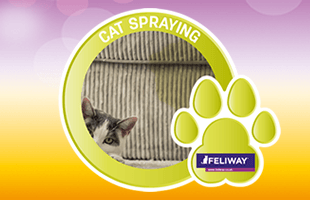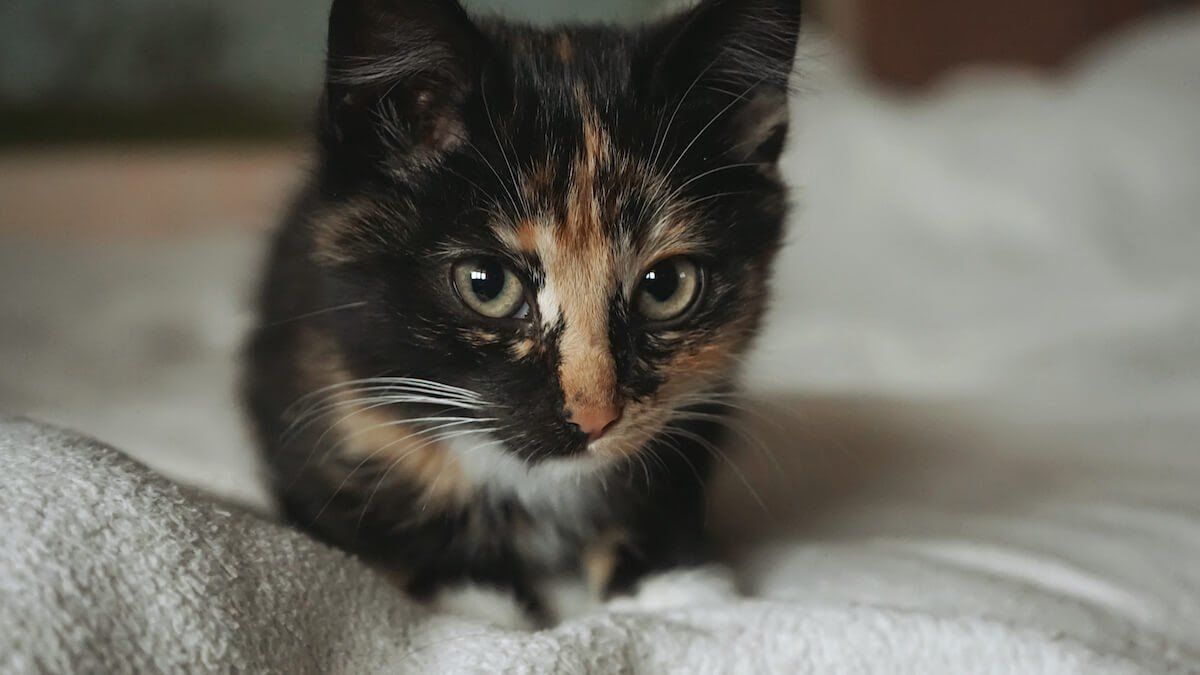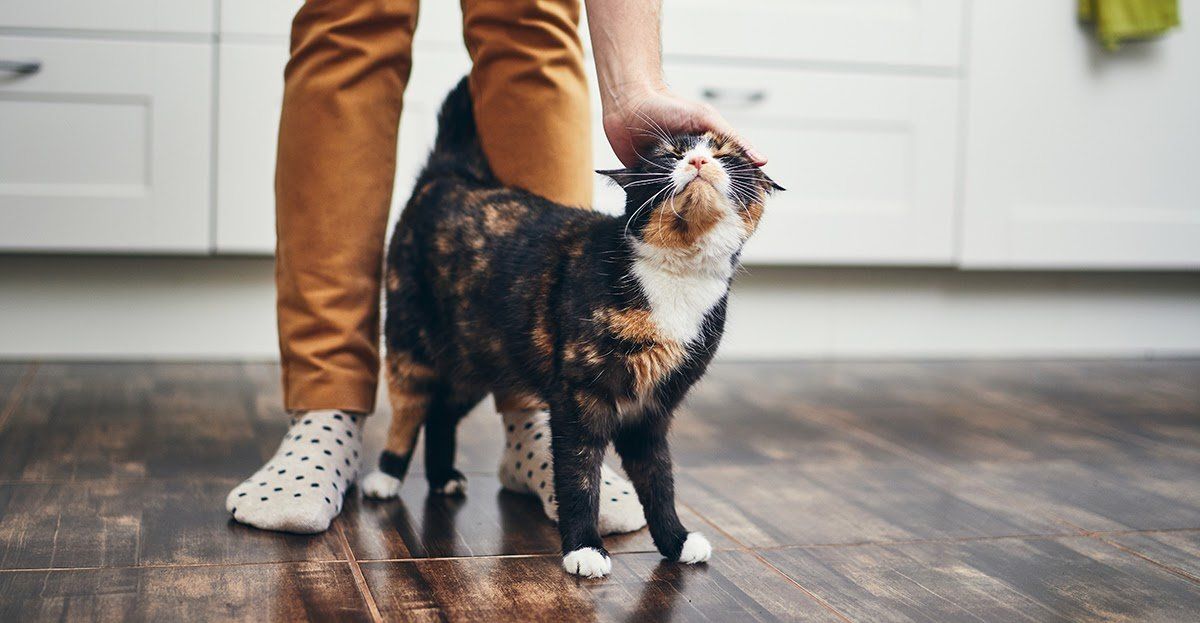Advice for Cat Owners
Advice for Cat Owners
Challenge
Challenge
Need advice? Read our blogs below.
Information for cat owners

Why does a cat spray? Spraying is perhaps the most misunderstood cat behavior, often confused with urinating. Spraying cats emit a foul smelling spray for territorial and calming reasons. The strong smell or even just performing the act and reduce stress or comfort your cat. The cat will usually choose vertical places to spray, have their backside raised & quiver their tail. Urine spraying is an indication that a kitten is now an adult. Who will spray? Both males and females can spray, even after neutering or spaying. Entire female cats sometimes spray to highlight their territory and to tell males they’re available. Males are available at all times and spray to leave urine marks as a territorial behavior, but this is also a sign of his availability to nearby females. Can be in combination with meowing and yowling, calling to available female cats in the area. Kittens begin spraying urine usually when they hit reproductive maturity. This stage varies, but ranges from around 4 months to over a year. Neutering or spaying a cat before reaching maturity can help prevent spraying, male cats usually mature physically between 4 to 5 months. Most cats begin spraying around 6 to 7 months of age, but if the cat is neutered before it ever sprays, it very likely will never begin spraying at all or develop a habit. It is still possible for cats to spray after they’ve been neutered. Therefore it is best to train your cat before they start spraying and create a positive reassuring environment to comfort your cat so they can cope through all the changes in your life together. What to do if you cat is spraying If your cat is already spraying, they are most probably uncomfortable and there is a stressor causing this. Help by removing whatever they have perceived as a threat or whatever is making them uncomfortable and stressed. Try and work out what may have changed in their environment most recently e.g. a new sofa Cats usually spray in response to anything that is making them stressed or they think of as a threat, can be anything from decorating the house, to a new animal around or a guest. Clean all cat marks With warm water and soap (enzymatic wash) or alcohol Let the area dry, do not use bleach! Using ammonia-based or bleach cleaners will attract your cat to spray again. You should see an improvement within the first week and continue to use for at least one month. Adhere to the litter box guidelines : ● One per cat plus 1 more ● Easy to access ● Locate away from food and water ● Always clean: Scooped daily and cleaned weekly. Remove any stressful changes in their environment - changes in your cat’s environment Any unavoidable new environmental changes should involve slow introductions and keep your cats routine as normal as possible. Feliway Classic should be used to mark the environment as safe and secure when any changes are being made. Health Problems Get your cat checked at the vet for any underlying health problems. Especially if the spraying perseveres despite being neutered and environmental issues addressed. Other things to look at: ● Look for litter box-related issues as your cat may be avoiding their litter box for a reason. Try adding another litter box or changing the location of the litter box or the litter you use. ● If a multicat household, ensure there are enough litter boxes so that each cat has one without conflict or competition for it. ● Blot the urine spray right away with a clean towel to soak up as much urine as possible, reducing the possibility of the pee soaking in. Use a cloth or towel that you can either immediately wash or throw away. If the spray is dry or on carpet, pour a cup of slightly warm water and wipe up with towels before adding cleaning products. Blot the stain and do not rub, as this would cause the stain to set or soak in.

Why does my cat scratch? Cats do need to scratch, it is a natural need and helps them sharpen and flex their claws. However cats can scratch inappropriately or excessively as a subtle way of showing that they are not completely happy. How to know if its stress scratching If scratching is widespread in your house or your cat is particularly destructive, this may be an indicator that this may be due to stress. If this has begun all of a sudden try and work out if something has changed suddenly in their environment e.g. a new sofa.

Cats like to hide when they are stressed so while dealing with the causes, make sure that you provide multiple cat hiding places (Cardboard boxes, baskets, open cupboards etc.). Cat hiding places should always be accessible to your cat and they prefer high places. Always respect your cat’s decision to hide and do not force them to come out. Understand why your cat may be hiding ● Recent changes at home? (new furniture, redecorating, moving home...) ● Visitors, ● A new family member, ● A new pet at home ● Competition or tension with another cat? Cats hiding can be completely normal and maybe nothing to worry about. They could also actually be sleeping; maybe your cat just likes that spot under your bed for some warmth, peace and quiet and finds it a nice safe place for an undisturbed snooze. However, this would mean that your cat doesn’t spend all their time there and when under the bed, they are relaxed and always sleeping there, so look out for their body language and any signs of stress or tension. Cats spend much of their day napping, so they may choose this private, comfy place to curl up to conserve body heat and hide themselves from potential threats. If something has changed or is new this perceived threat is not taken lightly (as they are natural prey animals) and they will hide, for example under your bed for safety until they realise that it is safe and this is not something that should be feared. Meaning your cat will come out after a while. If your cat hides often or there hasn’t been any additions, visitors or changes to their schedule or environment. Then take your cat to the vet for a check up, it could be a sign of pain e.g. dental. Try to comfort your cat at home and create the most comfortable calm environment as possible. Cats can hide because they feel stressed and anxious What not to do: ● Do not scold, shout or swat or force your cat to move or do anything to control/correct them, this will make things worse. Cats will perceive this negative punishment as a threat and act fearfulling with avoidance or aggression. ● Do not forcibly remove your cat from her perceived safe area. They are in this area as it makes them feel safe and cats feel less stress when they are able to choose movement and are able to move freely. Lessening stress will likely decrease the cat’s hiding behaviour. ● As tempting as it can be, do not stroke or soothe your cat during the hiding. You may accidentally reinforce this with the praise and increase your cat’s want to hit. Instead, try to ignore the cat and give them space. What to do: ● Do praise your cat for bravery and for any other behavior you want more of. ● Think of ways you might make it worthwhile for your cat to come out of hiding. Call your cat for meals and treats. If your cat will eat near you, try hand feeding your cat. Lack of appetite is one sign of stress. If the cat won’t take food from your hand, try sitting quietly near your cat and tossing an occasional treat. If your cat takes the treat, toss the treats closer to where you are sitting. Over time, the cat may take the treat from your hand. If all of these suggestions fail to reduce your cat’s hiding behavior then make sure you visit with your cat frequently to give mental stimulation and ensure he or she is getting nutrition, water and access to the litter box. Or, consider giving your cat a private room that is people and pet free. Make that private room a cat sanctuary that has everything your cat needs for comfort and security. Always take your cat to the vet if you are worried

Follow our “golden rules” on resources. Duplicate: each cat must have their own food bowl, water bowl, litter box and scratching post Separate: Spread your resources around the house. Ensure each cat has it’s own SEPARATE “dining room” and “bathroom”! This provides each cat with some privacy. Use the whole room. You can put some bowls higher up and some lower down to provide space. Conflict management, DO NOT punish your cats when they show signs of conflict. This would cause stress and therefore lead to more conflict. Provide more than one method of escape (exits) in each room. Also can provide covered walkways or tunnels so cat’s can get around and avoid conflict. Provide plenty of places to hide/rest and perch. If conflicts cause signs like urine spraying or scratching. If your home has frequent house fights, it's important to do your best to stop it. For your cat’s health as well as you. This is a process that may require patience and work at training them as it can take a lot of time. But stay with it as it may get you your desired outcome, however also be aware that some cats are completely solitary and may never get along. Cats are naturally solitary animals and can be very territorial. The fighting may occur due to territory. Observe the cats carefully to see if you can pinpoint when and where the unwanted behavior happens. For example, does it happen around mealtimes or when you are giving attention to one of the cats? You can help by adding more territorial space and spaces for your cats to go out their day, sleep and pass one another peacefully or escape one another. This can prevent the cats from having to share climbing, hiding, and perching areas where fights can break out. And prevent stress or avoidance from fear of conflict. You should increase resources, your cats should have minimum and separated.. food and water bowl each and one litter box each if not more, scratching post each and toys or cat trees/perching areas. The more the better and in different locations. If one cat is the aggressor try and intercept things before they occur or get bad. Redirect their behavior with an interactive toy/string and lure it into play. You can also interrupt with a sharp and short sound or ‘no’ and once they are away and cam, then you can reward this good non-violent calm behavior with fuss, food or a fun toy. But avoid rewarding behavior you don't want to see. Try not to give food or toys after the fight has broken out. Seeking help from an animal behaviorist may be very helpful to work out what to do, how to manage and control this situation. A visit to the vets may be necessary. Some health issues can make cats angrier than usual as a symptom. Especially if they have only just recently started not getting along when they used to, or if your cat has now become more aggressive. Treat the cats as though introducing them for the first time. GIve them their own areas and then make slow and short introductions. Use controlled situations to expose the cats to each other. Make sure the cats always have an exit to make them feel comfortable and allow them to leave if things get too much. Try to slowly see one another and then progress to being in same room whilst both being fed cats tasty foods or try to get them to engage in play so they associate being near one another to fun and positivity. Never force them into or to leave a situation. Give each cat one-on-one attention. If necessary, put one cat in another room while with the other cat. During one-on-one time, hand-feed treats or initiate playtime.
Every successful product is the fruit of hard work and this applies to every field of business. Intuition alone is not enough to create a product that people will love and use. You also need to do your research, thinking, planning, differentiating yourself and more. Write about some of the challenges you faced in designing this product and what steps you and your team took to overcome them.



